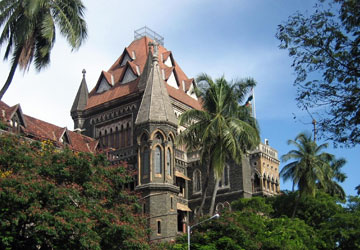
The Court, in an interim order, has ordered the government to provide protection to whistleblowers and social activists
In a long overdue judgement, the Bombay High Court (HC) on Friday, (7 May 2010), issued an interim order that would ensure both police protection to whistleblowers and social activists, as well as provide for the speedy investigation of their cases.
Moneylife has, in the past, covered several cases wherein social activists have been threatened, assaulted and even murdered despite pleas for police protection. Many such cases are still unsolved.
The two-member bench, comprising Justices FI Rebello and AA Sayed, passed the interim order that outlined various measures for the protection of social activists and whistleblowers, which covered immediate police protection and set guidelines for the investigation of cases.
The HC specified, among other things, that if a whistleblower or social activist approaches the police after receiving a threat or having been attacked, until the application for police protection is finally processed, the police must immediately provide interim protection.
The Court went on to direct the State government to set up a special committee to identify genuine whistleblowers and activists and ensure that all criminal cases or investigations pending against them be reviewed. It specified that the identification be done in an open and transparent manner and the guidelines of the process be disclosed to the public at the time of forming the committee.
The court also gave the State a 90-day deadline for forming a monitoring system to ensure that the investigations be done in a speedy and thorough manner. It further mandated that the investigations into complaints filed by whistleblowers and activists be investigated by an officer not below the rank of assistant commissioner of police or deputy superintendent of police.
The order also stated that the State government prepare a database consisting of the names of all identified social activists or organisations that have complained of threats in the past and also of the use of force against them if any. The mechanism should ensure the maintenance of confidentiality with regard to the identity of the individual and or the organisation.
The judgement is only an interim order and will be in force till a final order is passed. The case now stands adjourned to 16 June 2010 when the bench will issue further orders and directions on the interim provisions regarding the protection of social activists and whistleblowers.
The ruling evoked a mixed response from both the legal and activist fraternity, with some enthusiastic about it, and others who feel that the order will not translate into reality.
“Many a time, conclusive orders of the court are not complied with; time and again even courts have shown their inability to monitor implementation of their orders,” said Sandeep Jalan, an advocate.
He went on to offer a suggestion, “Both the appellant and respondents and the government should update their websites about action taken in pursuant of the court’s directions. As long as the appellant's or respondent's website doesn't show up details of action taken, non-compliance of court orders can and should safely be presumed.”
Some, however, were very pleased with the order, “I was represented and party to this order when it was passed and am quite happy with it. The problems that may arise are not in the court order but mainly in implementation. I think the committee will determine the final efficacy of the measures, so we should ensure that the committee has enough representation from committed activists who will be able to ensure that the new system works. The quality of the database to be prepared and the monitoring of police investigations is what will determine its success,” said Sumaira Abdulali, founder of the Awaaz Foundation.
Incidentally, Ms Abdulali had been the target of physical intimidation when she tried to confront the sand mafia about illegal sand mining.
Despite the optimism among some activists, there were others who felt that the order would not change anything.
“Nothing is going to happen on the basis of this HC order. Whistleblowers and activists will (continue) to be harassed, humiliated, victimised, attacked and even murdered in spite of such an order. It is due to lack of will to protect on the part of politicians who are the real culprits behind victimising the whistleblowers and activists. Similarly, the Central Vigilance Commission (CVC) has been made the designated authority by the Supreme Court to protect whistleblowers. But has the CVC, the designated authority, protected even a single whistleblower so far? We may be pleased by such orders, but can’t the court direct the Central government to enact a Whistleblower Protection Act?” said Ramesh Shah (name changed) a former whistleblower from the customs department.
He did, however, offer some words of encouragement. “In spite of being so pessimistic about the implementation of the court order, it is a good sign that judges of the Bombay High Court have taken cognisance of the problems faced by whistleblowers and activists in Mumbai and let us hope that the government of Maharashtra provides protection, as directed by the Hon’ble Court,” added Mr Shah.
Judging by the mixed response from activists, it seems that the effects of the order will only be felt if the State government is serious about protecting whistleblowers.
All will depend on the final ruling that the Court will pass on 16th June. — Rudreshwar Malkani